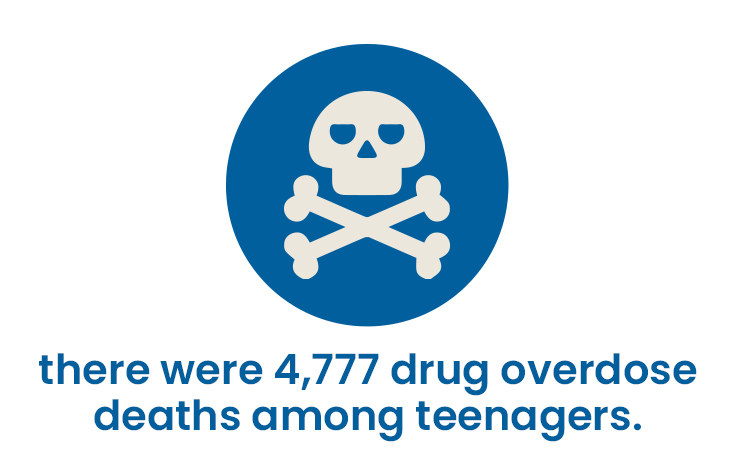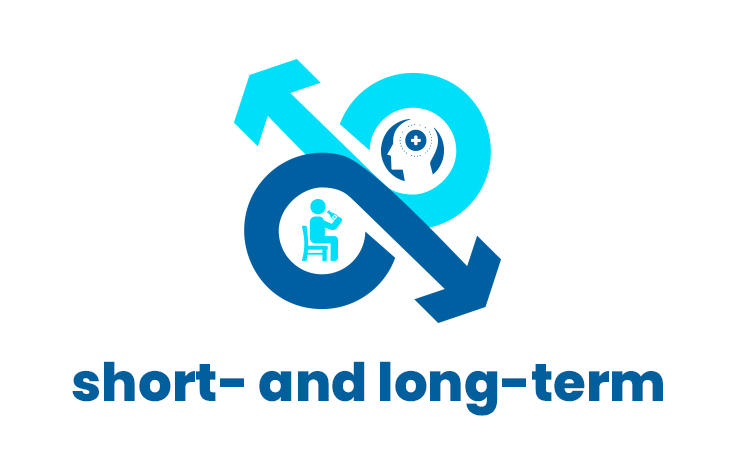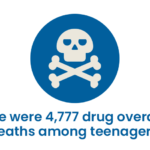No matter where the stress comes from, some people turn to drugs, alcohol, or other behavior like gambling to deal with it. A drink or two might bring short-term relief, but turning to substances regularly is how stress can create addiction.
Everyone feels stress every day. It’s stress that gets you out of bed to get to work in the morning, even when you’d rather stay warm and comfortable under the covers. On a fundamental level, stress motivates us to survive. But sometimes, stress can be overwhelming. People with high-pressure jobs or intense family obligations may have difficulty managing their work-related or duty-related stress in a healthy way.
Mental health can also play a big part in stress management. The stress from past trauma can manifest as post-traumatic stress disorder (PTSD). Individuals struggling with stress-related anxiety may have an undiagnosed or untreated mental health disorder that makes it more challenging to cope with situations others view as minor.
What Is Stress?
The early stress researcher Hans Selye said of stress, “Stress in addition to being itself, was also the cause of itself, and the result of itself.” In other words, stress causes more stress. It is a runaway train that can quickly run your life off the tracks if you don’t have a steady conductor to keep things under control.
You know what stress is when you feel it. Any situation that causes discomfort, such as being stuck in traffic or having a confrontation with a family member, can cause your heart rate to speed up and your blood pressure to rise. This is your body’s natural reaction一its way of getting you ready to “fight or fly.”
However, just because a reaction is natural doesn’t mean it is comfortable. While stress is a normal part of life, not everyone has the same coping skills. Stress can be measured, but it cannot be compared between individuals. When it comes to stress-related reactions, we are all at the mercy of our nature/nurture combination.
Stress Hormones at Work
When the brain recognizes a stressful situation, it secretes certain hormones to adapt to the event. That effort to adapt is often described as “good stress.” With no conscious effort on our part, the brain produces hormones intended to help form a new plan when the old one fails. The National Institutes of Health lists eight different hormones that impact the endocrine system during stress, but three specific hormones are responsible for most of our stress-related responses.
Adrenaline
Adrenaline is the primary hormone responsible for our fight or flight responses. When the brain interprets a situation as stressful, it sends a message to the adrenal glands to produce adrenaline. A flood of adrenaline causes immediate physical reactions such as sweating, muscle tension, increased heart rate, and a surge of energy. These intense psychological changes are helpful in dangerous situations where fighting or fleeing might actually be necessary. But in real life, most people rarely encounter this type of life-or-death situation.
Norepinephrine
Norepinephrine is similar to adrenaline, and the adrenal glands also produce it. A release of this hormone makes you feel hyper-focused and quick to respond. While adrenaline gets the body ready to take action, norepinephrine prepares the brain to react quickly. Think of it as adrenaline’s backup.
Cortisol
Cortisol is frequently referred to as the stress hormone. When the part of the brain called the amygdala senses a threat, it sets in motion a chain of cellular commands which signal the adrenal glands to release cortisol.
Cortisol helps regulate bodily functions and maintains blood pressure, but too much cortisol in your system can cause high blood pressure, high sugar levels, acne, weakened immunity, and contribute to obesity.
Frequent stress or an inability to manage stress can result in too many stress hormones flooding your bloodstream. It may take hours or even days to regain balance after the triggering event is over. This is one reason why many people feel “stressed” even when there is no apparent reason.
Symptoms of Stress
The immediate symptoms of stress are obvious, but chronic stress can lead to severe physical and mental illness.
Some of the health problems related to stress include:
- Developing a mental health disorder such as anxiety, depression, or personality disorder
- Eating disorders and obesity
- Menstrual problems
- Cardiovascular disease, heart attack, abnormal heart rhythms
- Stroke
- High blood pressure
- Diabetes
- Gastrointestinal issues such as ulcerative colitis, GERD, and irritable colon
- Sexual dysfunction, loss of desire, impotence
- Skin problems such as psoriasis, acne, or eczema
- Isolation
- Inability to focus
- Nightmares
- Mood swings
- Alopecia (hair loss)
The desire for quick stress relief is understandable, but it is also an example of how stress can create addiction. Alcohol or drug addiction can also be added to the list of possible stress-related health problems. If you are concerned about developing a substance use disorder because of the stress in your life, speak with your healthcare professionals. You should disclose anything that has the potential to affect your health to your doctor.
Chronic Stress and How Stress can Create Addiction
An occasional stressful situation isn’t going to cause most people to use drugs or alcohol. Acute stress (short-term) can actually work to motivate us to reach goals or perform well. Chronic stress (long-term) can result from significant life changes, such as a divorce, death, or trauma.
Reaching for a piece of chocolate cake or glass of wine to ease stress is accepted as normal behavior in our culture. And there’s nothing wrong with that, at least not on the surface. But relying on occasional indulgences as a coping strategy for stress can create addiction, especially for those who may already have genetic markers for addictive disorders.
Healthy Tips for Stress Management
You can’t avoid stress, but you can improve how you handle stressful situations and learn to manage chronic stress. It doesn’t matter whether your stress is work-related or caused by trauma; the solutions are the same.
The first step in reducing stress is to learn what triggers you. If you’re aware that you’re going into a stressful situation, such as a confrontation with a co-worker, you can reduce the effects of stress by preparing for the event.
Try the following techniques before and after an uncomfortable encounter to help you keep or regain balance as soon as possible.
1. Breathing
This is the easiest relaxation technique to try. Since we all have to breathe, you can utilize this tip anywhere, anytime, without needing privacy or causing a distraction. Focus on your breath. Take a long, relaxed breath through your nose, and release slowly through your mouth. Slow, focused breathing helps to lower blood pressure and heart rate and reduces your stress hormones.
2. Guided Imagery
This technique is easy to practice almost anywhere. Before encountering a situation you know will trigger stress, close your eyes and take a moment to visualize the event. See yourself remaining calm and accomplishing the task with skill and ease.
3. Meditation
Meditation is a natural stress reducer. Studies have shown that daily meditation improves the brain’s ability to solve problems and make decisions. It also helps to regulate mood disorders and reduce symptoms of depression.
There are several approaches and philosophies to meditation that you may be interested in exploring. However, if you’re new to the practice, the best advice may be to keep it simple. Sit in a comfortable position in a quiet place and follow these steps:
- Set a time limit (5 or 10 minutes is enough to start)
- Notice how your body feels; shift as needed to get comfortable and relieve muscle tension
- Focus on your breath
- When you notice your mind wandering, bring the attention back to your breath
- End with a moment of gratitude, slowly stretching your body as you prepare to stand
That’s all there is to it. Mediate any time of the day that is convenient or several times per day, but the daily practice is key. Meditating before facing a stress trigger is especially helpful for stress management.
4. Explore Nature
If sitting in quiet meditation isn’t for you, try taking a hike or nature walk instead. Walking has a similar effect on your brain as meditating and boosts stress-reducing endorphins to help you feel more optimistic. Studies on walking have shown that 20-minute walks can also decrease feelings of fatigue. For the best stress-busting benefits, walk outdoors. Being outside naturally relieves stress and improves your attention span.
Understanding More About How Stress Can Create Addiction
If you or someone you care about is struggling with substance use disorders related to stress, addiction treatment can help. Many of the therapies that help treat substance use are also beneficial for stress management, such as cognitive-behavioral therapy (CBT).
It’s important to remember that exposure to stress does not necessarily lead to health problems, including addiction. It is the inability to manage stress successfully that puts you at risk. Contact us today with questions or concerns about how stress can affect your health and your recovery.











